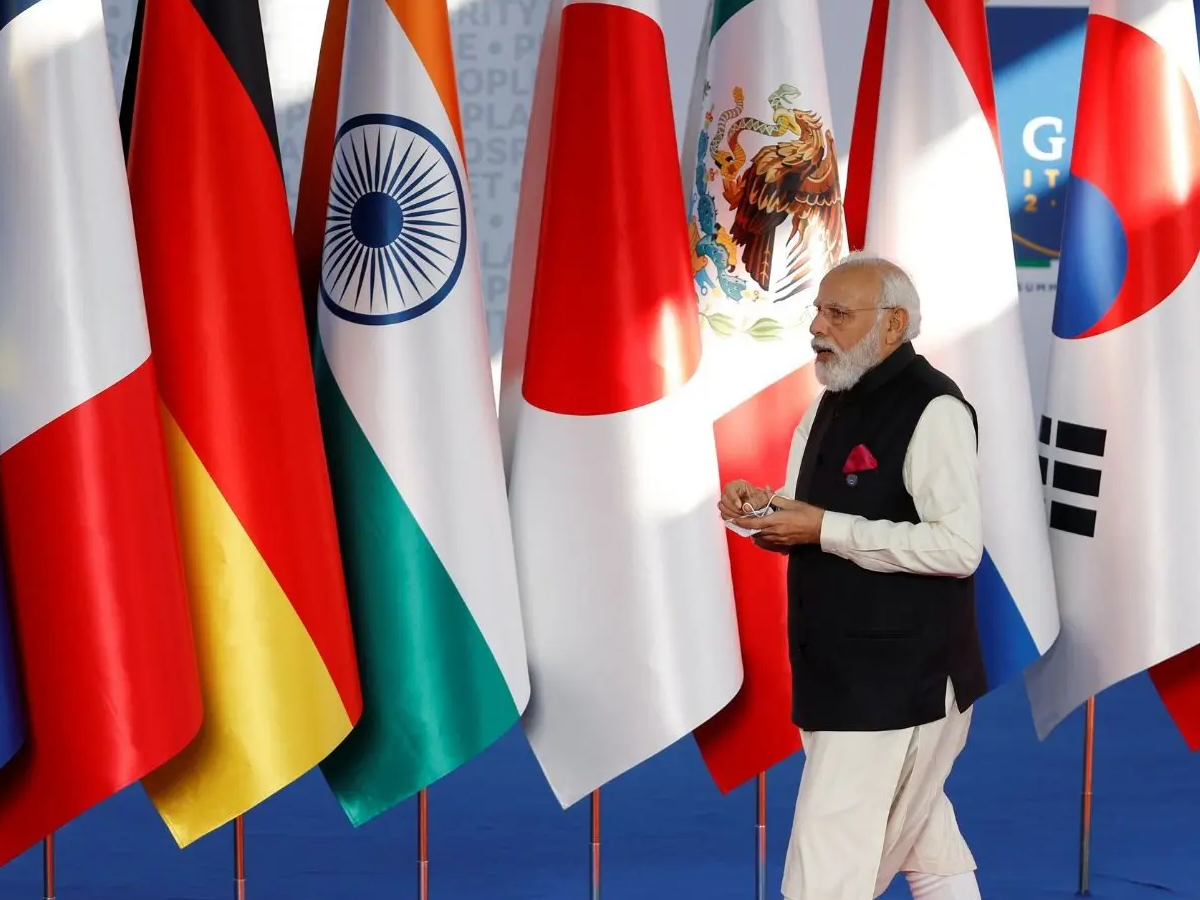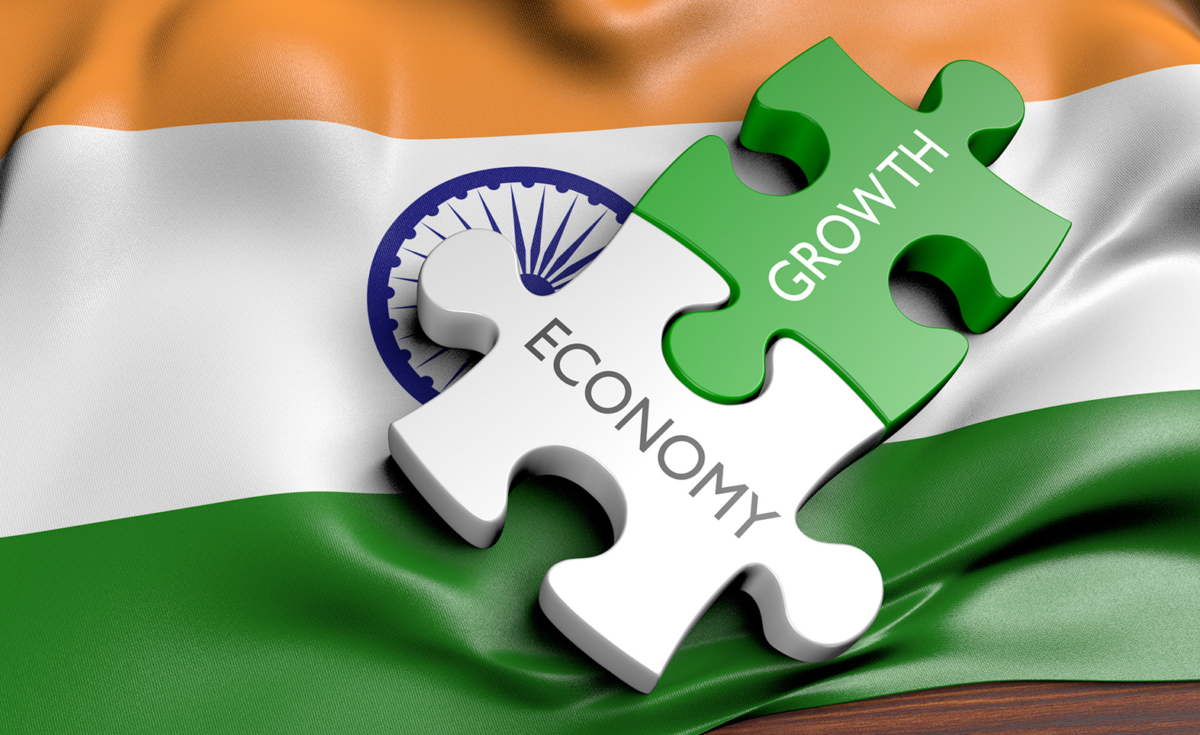India’s approach to foreign policy has seen a remarkable transformation in recent years under the leadership of Prime Minister Narendra Modi. Gone are the days of passive diplomacy; instead, India now asserts its interests with confidence on the global stage. This shift reflects a pragmatic and proactive stance, aimed at advancing India’s influence while addressing pressing global issues.
Table of Contents
Pragmatic Engagement
India’s pragmatic approach in foreign policy is evident in its adept maneuvering to safeguard its economic and security interests while nurturing strategic partnerships. Unlike in the past, India now readily aligns itself with major powers or forms strategic alliances if it serves its national interests. For instance, despite external pressures, India maintains crucial ties with Russia, showcasing a balanced approach that prioritizes strategic imperatives over external influences. This pragmatic stance allows India to navigate complex geopolitical landscapes while advancing its own interests effectively.
Championing the Global South
India has emerged as a staunch advocate for the Global South, voicing the concerns and aspirations of developing nations on the global stage. Through platforms like BRICS and G20, India collaborates with other emerging economies to tackle common challenges and promote inclusive development. By championing the cause of developing countries, India enhances its standing as a leader in the international community, amplifying the voices of marginalized nations and advocating for equitable global governance.

Development Partnerships
India’s foreign policy places a strong emphasis on fostering partnerships for development, particularly with countries in the Global South. Through initiatives such as extending lines of credit, providing technical assistance, and sharing expertise, India contributes to infrastructure development, capacity building, and human resource development in partner countries. These initiatives not only cultivate goodwill but also bolster India’s soft power and influence on the global stage, reinforcing its image as a reliable partner in fostering sustainable development worldwide.
Economic Diplomacy
Economic diplomacy is central to India’s foreign policy agenda, as it actively seeks to bolster trade and investment ties with nations worldwide. By forging strategic economic partnerships and participating in global trade forums, India aims to expand its market access, attract foreign investment, and enhance its position in the global economy. Through initiatives such as trade agreements, investment facilitation, and economic cooperation, India endeavors to foster economic growth and prosperity domestically and internationally.

Contribution to Global Issues
India is steadfast in its commitment to addressing pressing global challenges, ranging from climate change and public health to disaster management. Initiatives like the International Solar Alliance and Vaccine Maitri exemplify India’s willingness to collaborate with the international community to find solutions to these issues. By leveraging its expertise, resources, and leadership, India enhances its reputation as a responsible global actor, strengthening its relationships with other nations and contributing to a more sustainable and equitable world.
Qatar Row and Display of a Powerful Foreign Policy
The recent case involving the release of eight former Indian naval officers from Qatar further underscores the rising power of India’s foreign policy on the global stage. The incident, which initially saw the officers facing unspecified charges and sentenced to death, drew significant attention both domestically and internationally. Despite the serious nature of the allegations, India swiftly engaged in diplomatic efforts to address the situation.
India’s proactive approach to the issue highlights its growing assertiveness in safeguarding the interests and well-being of its citizens abroad. The prompt actions taken by Delhi, including filing an appeal against the death sentences and engaging in sustained diplomatic dialogue with Qatar, demonstrate India’s commitment to protecting its nationals and upholding their rights. Moreover, India’s close relationship with Qatar played a crucial role in facilitating the resolution of the case.
The strong bilateral ties between the two countries, including significant economic cooperation such as the multi-billion dollar LNG deal, provided a foundation for diplomatic negotiations and cooperation. The successful outcome of the case, with the release of the officers and their return to India, serves as a testament to India’s growing diplomatic influence and ability to navigate complex international challenges. It showcases India’s capacity to effectively leverage its diplomatic channels and engage with other nations to achieve favorable outcomes for its citizens.

India’s bold and pragmatic approach to foreign policy, as exemplified by its proactive engagement, advocacy for the Global South, development partnerships, economic diplomacy, and contributions to global issues, showcases its growing influence on the global stage. The successful resolution of the Qatar row underscores India’s rising diplomatic prowess and its commitment to safeguarding the rights and interests of its citizens abroad. As India continues to assert its presence in international affairs, its diplomatic achievements serve as a testament to its growing stature as a global leader.



